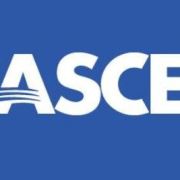Raman, M., Tang, M. 3D Visualization Development of Urban Environments for Simulated Driving Training and VR Development in Transportation Systems. ASCE ICTD 2023 Conference. Austin. TX. 06. 2023

This work is based on a project to develop a physics-based, 3D digital visual environment that is a replication of actual field conditions for over seventy miles of Ohio highways and city roads for use in a driving simulator for the Ohio Department of Transportation. While transportation engineering design traditionally involves 3D design in a 2D workspace to create the built environment in the context of a natural environment, this project required replication of existing natural + built environments in a 3D digital space, thereby presenting a unique challenge to develop a new, repeatable process to create a specific digital end product.
Using industry-specific software comprised of InfraWorks (urban infrastructure design), Civil 3D (terrain modeling), Rhino (3D product modeling), 3ds Max (rendering/animation), Maya (3D animation/simulation), and Python (scripting) that are traditionally dedicated to their fields, the team developed a process to integrate them outside of their intended purposes so that they could connect industry-specific functionalities to deliver a novel product that can now be utilized by multiple markets.
This process utilizes the functionalities of each software to resolve a portion of the puzzle and delivers it as a solution for the next step of development using another software. Using an iterative development cycle approach, the process bridges the gaps between the industries of Transportation Engineering, Visualization, Architecture, and Gaming to deliver the end product.
The resulting 3D digital model of the existing urban environment can now be readily used as a baseline product for any industry that would benefit from such a digital model. In transportation engineering, it can be used in Transportation Systems Planning, Surface Operations, and/or Workforce Development. In outside/connected markets, it can be used in UI-based development, interactive game-based multiplayer virtual meetings, and photo-realistic immersive models for use in VR/multiplayer exploratory environments. This process has been standardized for the digital development of existing site conditions and context for the architectural conceptualization of buildings and public spaces in the Architecture program at the University of Cincinnati. The same process has been carried into the next development phase for the Ohio Department of Transportation.
Project link:
Training Simulation for snowplow
















